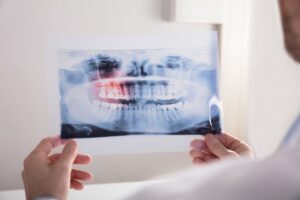
Wisdom teeth, also known as third molars, are often seen as a rite of passage to becoming an adult. Almost every young adult seems to need to have them extracted. But does that include everyone? The short answer is no, not everyone develops these teeth, and for some, they never cause any issues at all. The presence, number, and impact of wisdom teeth can vary significantly from person to person. In this post, you’ll find more discussion about them along with answers to questions you may have about getting them removed.
What Are Wisdom Teeth?
Wisdom teeth are the last set of molars that typically emerge in late adolescence or early adulthood, usually between the ages of 17 and 25. They are called “wisdom” teeth because they appear at a more mature age. Humans usually have four of them – one in each corner of the mouth – but not everyone develops all four. Some people may have fewer, and a lucky few may not develop any at all.
Why Don’t Some People Have Wisdom Teeth?
The absence of wisdom teeth can be due to a variety of factors, most notably genetics. Just as you inherit traits like eye color and height, you also inherit your dental blueprint. If your parents didn’t develop wisdom teeth, there’s a good chance you might not either.
Another reason some people don’t develop wisdom teeth lies in human evolution. Our ancestors had larger jaws to accommodate more teeth, which helped them chew tough, raw foods. Over time, as our diets became softer and cooking methods improved, our jaws became smaller. However, the number of teeth didn’t always shrink to match, leading to problems when wisdom teeth tried to erupt in an already crowded mouth. As a result, some evolutionary biologists believe that humans are gradually evolving to no longer need or even grow wisdom teeth.
What Happens If You Do Have Them?
For those who do develop wisdom teeth, the outcome varies. If the teeth come in straight and there’s enough room in the jaw, they can be healthy and functional. But more often, they grow in at odd angles or get stuck (impacted) under the gums due to lack of space. This can lead to pain, infections, cysts, or damage to nearby teeth.
Because of these potential issues, many dentists recommend monitoring wisdom teeth with X-rays during the teenage years. If they appear to be problematic, a proactive extraction may be advised, often before they fully develop roots, making the procedure easier and recovery faster.
Do You Need Them Removed?
Not everyone with wisdom teeth needs them removed. If they’re healthy, fully erupted, and not causing crowding or discomfort, they can remain in place. Regular dental checkups help ensure they aren’t causing hidden issues.
So, no, not everyone has wisdom teeth, and that’s completely normal. Whether you have all four, just one, or none at all, it’s simply a matter of biology and genetics. The important thing is to keep regular dental appointments so your dentist can monitor their development and decide if any action is necessary.
About the Author
Dr. J. Darrell Steele has decades of experience as an oral surgeon. He’s a graduate of the Baylor College of Dentistry and is a member of the American Dental Association and the Texas Dental Association. If you have questions about your wisdom teeth and possible extraction, we offer complimentary X-rays and evaluations so we can decide what treatment is right for you. Schedule yours today through our website or give our Coppell office a call at (972) 315-3355.






